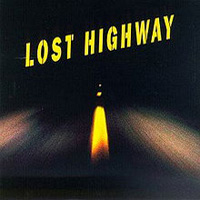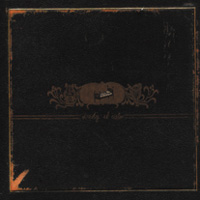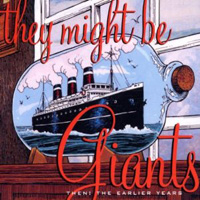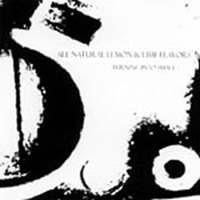 Lost Highway Soundtrack
Lost Highway Soundtrack
(Produced and Compiled by Trent Reznor) (Nothing/Interscope)
by Nik Rainey
Reznor’s been Lynched. Actually, it’s more accurate to say that Lynch has been Reznored, but that doesn’t have the same ring to it – that sounds more like some old backwoods technique for boring out plantar’s warts, and, although David Lynch probably has full-color textbooks on just that subject lying on his coffee table at home, that’s hardly the proper image with which to begin a record review, particularly since it’d be redundant to the splatter-metal (or decapi-core or whatever it’s called) record that’s reviewed on page 42 which uses only phrases out of those very same textbooks for lyrics. Uhhwha-ha?… Oops, lost myself in reverie for a second. Oh, right, the record review…
For Lost Highway, his first feature in five years, outré auteur David Lynch enlisted the services of Trent (Mr. Chipper) Reznor to compile its soundtrack, in much the same way Rezzie put together the classic cheap-thrill collage that accompanied Oliver Stone’s Disneyesque family romp Natural Born Killers. The implied intent is to mirror the contorted psyches of the characters in the film in like-minded sonic terms. The more likely motive is to offset the considerable commercial risk of this project by tacking on a name that’ll draw gloomy urchins into the theaters by the black-wooled flock. Either way, it’s a canny move and I applaud it. (Aye, a plaudit.) Combining Reznor’s studied sense of pacing and ear for atmosphere with Lynch’s queasy dream state dynamics and bent classicism, the music for Lost Highway reverberates like a fevered mirage on a long stretch of summer asphalt.
The use of a David Bowie track (“I’m Deranged” from his underrated Outside album) as the disc’s opener and closer is quite apt, not only because he’s made surreal appearances alongside both artists (first in a minute-long role in Lynch’s Twin Peaks: Fire Walk With Me, then as the inverted opening act on the last Nine Inch Nails tour), but because his inchoate psychodramatics, Eno-vocative sound and cheesy Mike Garson piano trills serve as convenient aural shorthand for the Lynch experience. Reznor follows with a too-brief snatch of creepy incidental noise bridging into NIN’s “The Perfect Drug,” a familiar-sounding construction strengthened by a few surprising touches (I believe this qualifies as a love song!). The Smashing Pumpkins step somewhat out of character with the mellotronic pulse of “Eye,” while Lou Reed resolutely holds fast to the mark he taped down for himself decades ago, taking the oldie “This Magic Moment” and making it sound flat, stolid and amelodically melodic – in short, like he wrote it himself. No small feat. Antonio Carlos Jobim‘s “Insensatez” is your standard lounge-lizard seduction Muzak, Mantovani-drippy on its own but disquieting in this context, making you look for the slashed eyeball in the martini glass where the olive should be. Rammstein is the heavy portion of the program, a Kraut analogue to the function Powermad served in Wild At Heart – a gutturally impressive crunch from a band you’ll never hear from again. I’d like to think that Reznor included the two goof-gurgles from the increasingly ridiculous Marilyn Manson out of a sense of obligation – Mare probably threatened to put his ribs back in if he didn’t. (Rendering Screaming Jay Hawkins’ “I Put A Spell On You” half as scary and one-tenth as convincing is a matter that should be brought to the attention of the proper authorities.)
For all the slaughter-household names, however, the heart and soul of Lost Highway resides in the instrumental work of Lynch’s longtime musical companion, Angelo Badalamenti, and former Devoto/Cave crony Barry Adamson (who has been making soundtracks since before he had movies to make them for). Both men utilize orchestration, jazz dissonance and borrowings from everything from dub reggae to the Classics IV’s “Spooky” to create a varied course of sounds that flicker on the mindscreen with deep focus atmosphere. These two are the Nino Rota and Henry Mancini of our time (or are they Lalo Schiffrin and Bernard Herrmann?). As for Reznor, props are due him for once again constructing a compendium of sounds sympathetic to the style of the picture for which they were commissioned and for splitting the difference between art and commerce with typical poise. Wonder if they’ll tap him to score the next Merchant Ivory epic.



